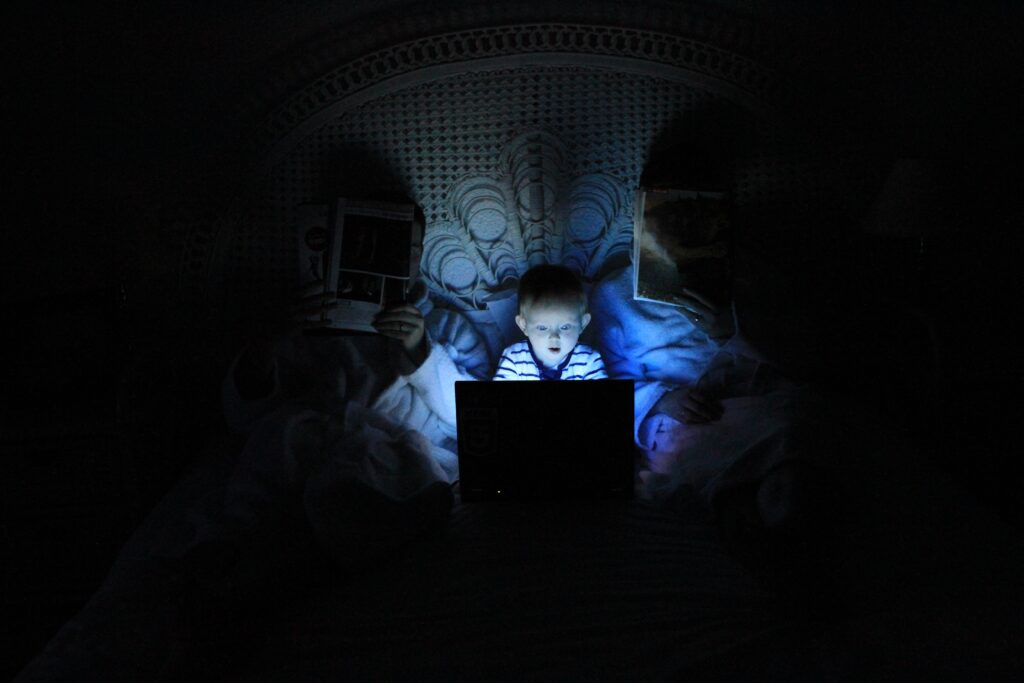Nowadays, screens have become ubiquitous in our society, and their excessive use can have a significant impact on children's sleep quality. In this article, we'll look at the effects of screens on children's sleep, the underlying mechanisms, and give practical advice to help parents manage this issue.
Effects of screens on children's sleep:
First of all, it's important to understand that the light emitted by screens, whether TVs, tablets or cell phones, can disrupt a child's natural circadian rhythm. Our bodies have an internal clock that regulates our sleep-wake cycle according to the light we receive. When children are exposed to blue light from screens before bedtime, this can suppress the production of melatonin, a hormone that promotes sleep, and make it more difficult to fall asleep.
What's more, using screens before bedtime can also lead to cognitive and emotional stimulation, making it more difficult to move into a relaxed state conducive to sleep. Video games, social networks and captivating multimedia content can cause mental and emotional arousal, which can persist even after the screen has been turned off. It is therefore recommended to limit the use of screens to at least one hour before bedtime, to allow the child to relax and prepare mentally for sleep.
Screens can also affect sleep quality by disrupting the regularity of bedtime and wake-up times. Children who spend too much time in front of screens may delay their bedtime, which can lead to chronic sleep deprivation. Similarly, if children use screens as soon as they wake up, this can disrupt their circadian rhythm and make it difficult to fall asleep the following evening. It is therefore essential to establish a regular sleep routine, with consistent bedtime and wake-up times, to help children regulate their sleep-wake cycle.
It's important to create an environment conducive to sleep. It's important to have a calm, dark, cool bedroom that encourages rest. Because of their brightness and cognitive stimulation, screens should be excluded from the bedroom. It's best to create a screen-free relaxation zone, where the child can read a book, listen to relaxing music or practice relaxation exercises before bedtime.
Finally, as parents, it's vital to set an example. If you want your child to reduce screen time and improve sleep quality, you also need to set an example by limiting your own use of screens. Children often imitate their parents' behavior, so it's important to set a good example by establishing clear rules and respecting these limits.
In conclusion, screens can have a significant impact on children's sleep. The effects of blue light, cognitive and emotional stimulation, and disruption of sleep schedules can all contribute to sleep disorders in children. Parents need to limit the use of screens before bedtime, establish a regular sleep routine, create an environment conducive to rest, and set an example by limiting their own screen time. By taking these steps, parents can help their children improve their quality of sleep.




